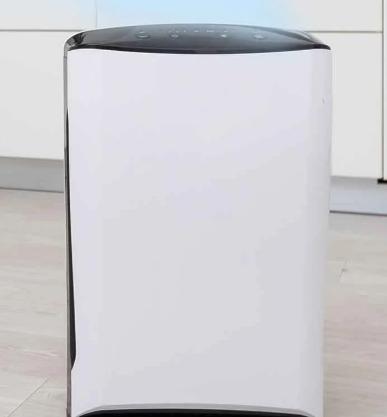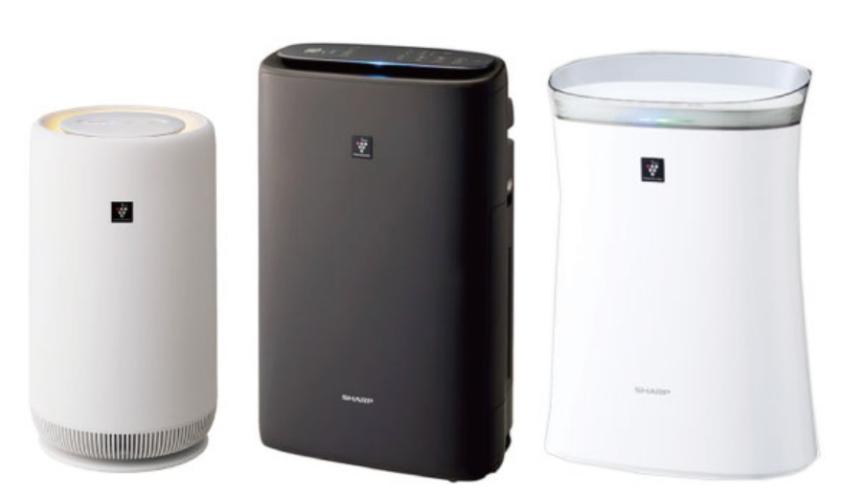What is ionizer air purifier? An ionizer air purifier is a device designed to clean the air in your home or office. These purifiers target airborne particles, pollutants, and allergens to improve air quality. Unlike conventional air purifiers, ionizers use electrical charge methods to eliminate contaminants. Understanding how these devices work, their benefits, and potential risks can help you decide if an ionizer air purifier is right for you.

How Does an Ionizer Air Purifier Work?
The Science Behind Ionization
Ionization is the process of adding or removing electrons from molecules or particles in the air. Ionizer air purifiers create a stream of charged particles, usually negative ions, that attach to airborne pollutants. This connection makes the pollutants heavy enough to fall to the floor or stick to surfaces, effectively removing them from the air.
Positive vs. Negative Ions: How They Trap Pollutants
Positive and negative ions play critical roles in how ionizer air purifiers operate. Negative ions attach to pollutants like dust, smoke, and bacteria, neutralizing them. The charged particles become too heavy to remain airborne, causing them to settle on surfaces. This process reduces the number of pollutants and allergens in the air we breathe.
Ionizer Air Purifier vs. HEPA Filters: Key Differences
While ionizer air purifiers and HEPA filters aim to improve air quality, they function differently. HEPA filters physically capture airborne particles using a fine mesh, removing up to 99.97% of pollutants. In contrast, ionizers use electrical charges to neutralize pollutants but don’t trap them. HEPA filters are often more effective but require regular maintenance, while ionizers are low-maintenance but can have limited effectiveness.
What Are the Benefits of an Ionizer Air Purifier?
Eliminating Airborne Pollutants
Ionizers are effective at reducing airborne pollutants like dust, pollen, and smoke. The negative ions bond with these particles, making them easier to remove from the air. This improvement can significantly impact those with respiratory issues or allergies.
Reducing Allergens and Bacteria
Ionizer air purifiers can reduce allergens and bacteria in the air, providing a cleaner environment. By neutralizing these harmful particles, ionizers help diminish allergy symptoms and the spread of bacteria-laden droplets, contributing to better overall health.
Odor Removal and Fresh Air Improvement
Another notable advantage of ionizers is their ability to remove odors. Negative ions neutralize odor-causing molecules, leaving behind fresher, cleaner air. This can be especially beneficial in areas prone to unpleasant smells, like kitchens or pet areas.
Are Ionizer Air Purifiers Safe? Risks & Considerations
Ozone Emissions: What You Should Know
One of the primary concerns with ionizer air purifiers is ozone emission. Ozone, a byproduct of ionization, can be harmful in high concentrations, causing respiratory issues. It’s critical to choose an ionizer certified for low ozone emissions to mitigate this risk.
Who Should Avoid Ionizers? Health Concerns
Individuals with asthma or other respiratory conditions should exercise caution when using ionizer air purifiers. Though beneficial, the ozone produced can aggravate these conditions. Consulting a medical professional before making a purchase is advised.
Safe Usage Tips for Ionizer Air Purifiers
To use an ionizer safely, follow manufacturer guidelines strictly. Place the ionizer in well-ventilated areas, avoid excessive use, and regularly clean surfaces where pollutants may settle. Being mindful of these practices can enhance the benefits while minimizing risks.
Should You Choose an Ionizer Air Purifier?
When an Ionizer Is a Good Choice
Ionizer air purifiers can be a good choice for those looking to reduce airborne pollutants and odors with minimal maintenance. They are particularly useful in moderately polluted environments and for those without severe respiratory issues.
Alternative Air Purification Options
If you have specific needs, like removing fine particles or allergens, a HEPA filter might be more effective. For chemical fumes or gases, consider activated carbon filters. Evaluating your air quality concerns will help you select the best solution for your needs.

Conclusion
Ionizer air purifiers offer an effective way to enhance indoor air quality by reducing pollutants, allergens, and odors. If you're wondering what is ionizer air purifier, it’s a device that releases negatively charged ions to attach to airborne particles, making them easier to trap or causing them to settle out of the air. However, it’s essential to consider potential risks like ozone emissions and health concerns. By understanding their operation and benefits, you can make an informed choice about using an ionizer air purifier.
FAQ
Do ionizer air purifiers really clean the air?
Yes, ionizer air purifiers clean the air by generating negative ions that attach to pollutants, causing them to settle out of the breathable air.
Can an ionizer air purifier remove viruses?
Ionizers can reduce some airborne viruses, but they’re not always as effective as HEPA filters or UV air purifiers for virus removal.
How often should I use an ionizer air purifier?
Usage depends on your specific needs and air quality. Generally, a few hours per day or as needed for maintenance can be effective while minimizing risks.